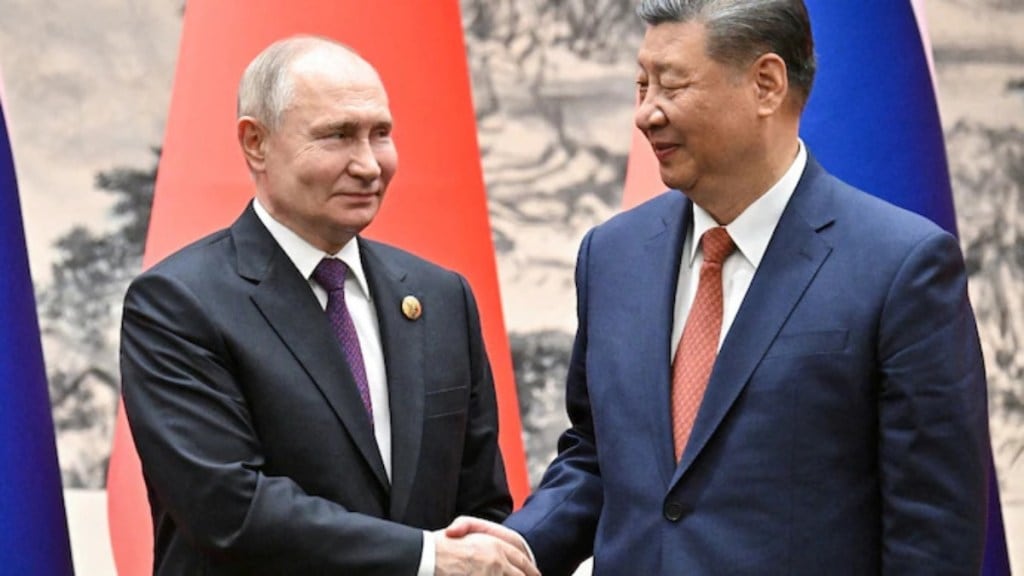In the wake of recent diplomatic developments, China has addressed the potential shift in US-Russia relations following US President-elect Donald Trump’s renewed ties with Russian President Vladimir Putin, specifically on the issue of the Ukraine conflict. On Friday, China emphasised that the rapprochement between Moscow and Washington was primarily “a matter between them,” downplaying any potential impact on China-Russia ties.
Chinese Foreign Ministry spokesperson Mao Ning, while commenting during a regular briefing, underscored the strength of China-Russia relations, describing them as a “comprehensive strategic partnership of coordination for a new era.” Ning reaffirmed China’s position on Ukraine, stating, “Our stance on the Ukraine crisis is consistent. We support all efforts that are conducive to the political settlement of the crisis,” signaling China’s support for peaceful resolution without direct involvement.
The briefing followed Putin’s remarks in Sochi, where he expressed optimism regarding Trump’s interest in ending the Ukraine war. “What has been said about the desire to restore relations with Russia, to contribute to the end of the Ukrainian crisis, in my opinion, it deserves at least attention,” Putin said. While praising Trump’s stance, Putin also criticised the United States’ policy of “dual containment,” aimed at both Russia and China, a viewpoint echoed by Ning in her comments on the counterproductive nature of major-country competition and containment policies.
Ning reinforced China’s commitment to strategic ties with Russia, adding, “China and Russia are each other’s comprehensive strategic partners of coordination for a new era.” She highlighted China’s belief that mutual respect and cooperation are the pathways to international harmony, stating that “containment and suppression as well as bloc confrontation will win no support.”
Trump’s re-election concerns Beijing
Trump’s re-election has raised concerns in Beijing regarding the potential implications for China-Russia relations, as Trump’s previous term saw stronger US-Russia rapport compared to the current Biden administration. Analysts have noted that any positive shift in US-Russia relations could challenge China’s strategic ambitions, especially as President Xi Jinping seeks alliances to counterbalance the US influence in the Indo-Pacific, particularly in regions like the South China Sea.
While Kremlin spokesman Dmitry Peskov hinted that Trump and Putin might communicate before Trump’s official inauguration on January 20, 2025, China’s response remains cautious yet observant. During his campaign, Trump emphasised his strong ties with Putin, promising to resolve the Ukraine crisis within a day. At the same time, Putin reaffirmed Russia’s close relationship with China, reiterating criticism of the US approach to “dual deterrence.”
Putin argued that a policy shift toward “triple cooperation” among the US, Russia, and China could foster global stability, adding, “It would have been a win-win situation for everyone.” His remarks underscore the high level of trust between Russia and China, which he described as unprecedented in modern history.
While the geopolitical landscape remains fluid, China appears poised to adapt, seeking to protect its strategic interests while navigating the shifting dynamics between the US and Russia. As the US administration changes, China will likely observe how Trump’s approach to Moscow impacts its own foreign policy and global standing.
(With agency inputs)
